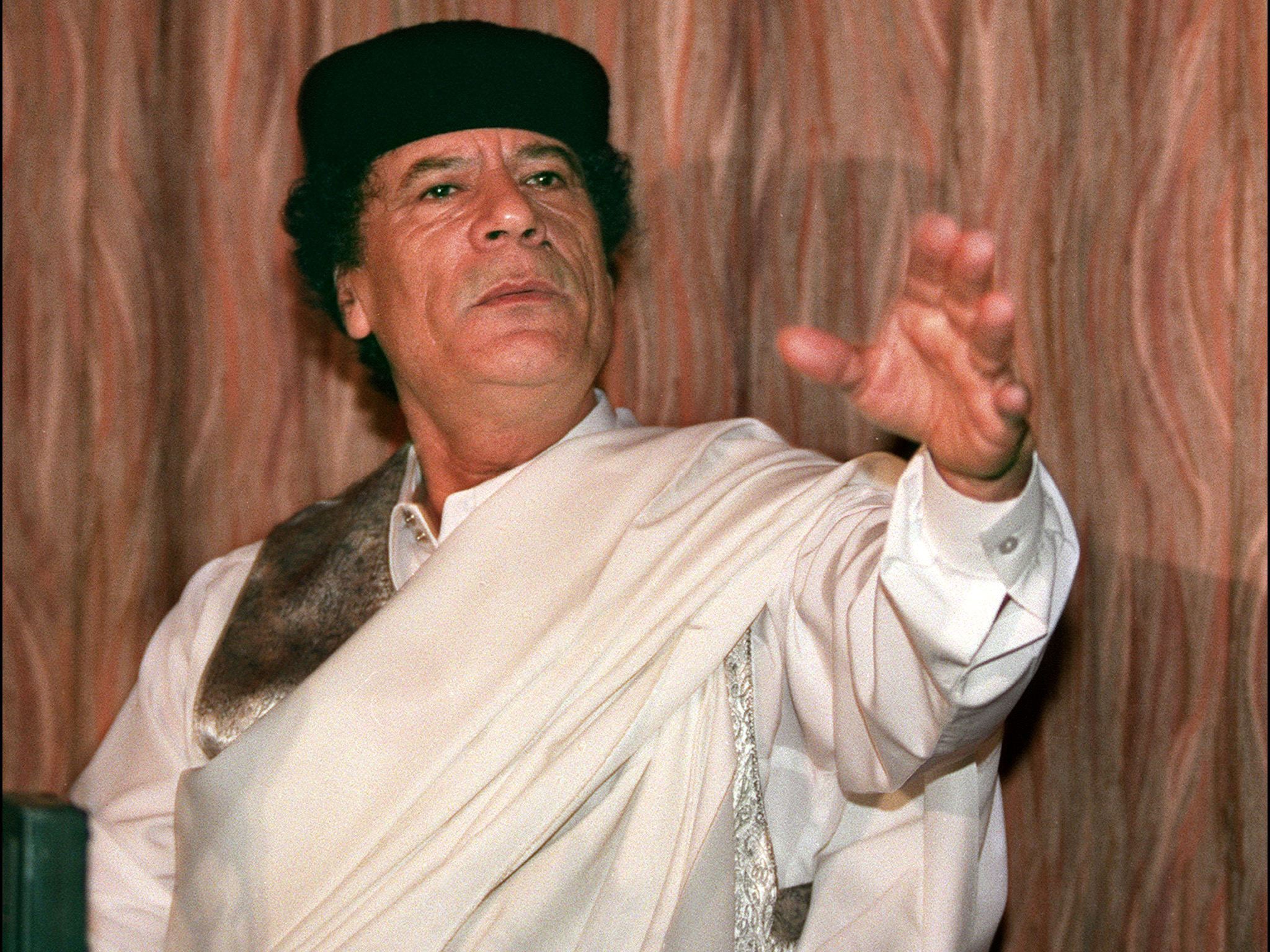Libya, from Arab Spring to Islamist Autumn
Diplomatic Channels


Your support helps us to tell the story
From reproductive rights to climate change to Big Tech, The Independent is on the ground when the story is developing. Whether it's investigating the financials of Elon Musk's pro-Trump PAC or producing our latest documentary, 'The A Word', which shines a light on the American women fighting for reproductive rights, we know how important it is to parse out the facts from the messaging.
At such a critical moment in US history, we need reporters on the ground. Your donation allows us to keep sending journalists to speak to both sides of the story.
The Independent is trusted by Americans across the entire political spectrum. And unlike many other quality news outlets, we choose not to lock Americans out of our reporting and analysis with paywalls. We believe quality journalism should be available to everyone, paid for by those who can afford it.
Your support makes all the difference.Libya’s current troubles are not due to the failure of democracy, but to the fact that democracy has been successful.
They are also not due to Western action, but rather the woeful lack of it since the fall of Muammar Gaddafi.
The two post-revolution national elections were pretty fairly run with voters making considered decisions on governance. The first polls, in 2012, went so well, and such was the level of maturity in the debate surrounding them, that many of us thought that stability would take root. This would also be the place, we thought, where the Arab Spring would not be followed by an Islamist Autumn: while Ennahda and the Muslim Brotherhood had won in Tunisia and Egypt, the theocratic parties did surprisingly badly in Libya.
The supposed foreign funding of the religious hardliners also counted against them. Having done badly in the elections, the religious hardliners effectively hijacked the new parliament, the General National Council (GNC). The administration which came into being was singularly ineffective as the economy collapsed, the militias continued to flourish and the country began to break up into cantons and tribal territories. It was in the interest of some politicians, not all from the Muslim Brotherhood, to sustain this state of destabilisation.
The West’s culpability over Libya was worse in the post-war period than when it intervened against the Gaddafi regime. There were attempts to secure oil and construction contracts, but little was done to build institutions, train a national security force, or help tackle human rights abuses. The great warriors, David Cameron and Nicolas Sarkozy, were by then too busy talking about liberating Syria from Assad, although talking was all they were prepared to do as Syria supplanted Libya as the bloodiest chapter of the Arab Spring.
The deepening anger about the state of affairs led to street demonstrations and calls for fresh elections which the GNC at first contemptuously dismissed.
But the protests continued and a former general, Khalifa Haftar, launched a military campaign against Salafists in the east after a failed coup attempt in Tripoli. Elections were eventually called in June and again they went off smoothly in most places apart from Benghazi and a few other parts of the east. Voters I met said they were not worried about ballot stuffing, but what may happen afterwards. The Islamists knew that this time they faced a devastating defeat.
They tried to delay the declaration of the results by making endless complaints about process and then orchestrated an attack on the airport in Tripoli. The West’s response was to scuttle their embassies out of Tripoli. Sheikh Sadik al-Ghariani, the reactionary grand mufti of Libya, was, meanwhile ensconced in Britain, encouraging the Islamist militias who had gone on a spree killing and abducting in the Libyan capital.
As Libya fragments, there is, once again, foreign intervention, by regional players. Egypt and the UAE, traditional opponents of the Muslim Brotherhood, have carried out air strikes, the Turks have held talks with the leader of the Islamist coalition in charge in Tripoli, and the Turks and Qataris have been accused of sending clandestine arms shipments.
However the pieces fall, it seems highly unlikely that Libya will be holding free and fair elections in the foreseeable future.
Join our commenting forum
Join thought-provoking conversations, follow other Independent readers and see their replies
Comments